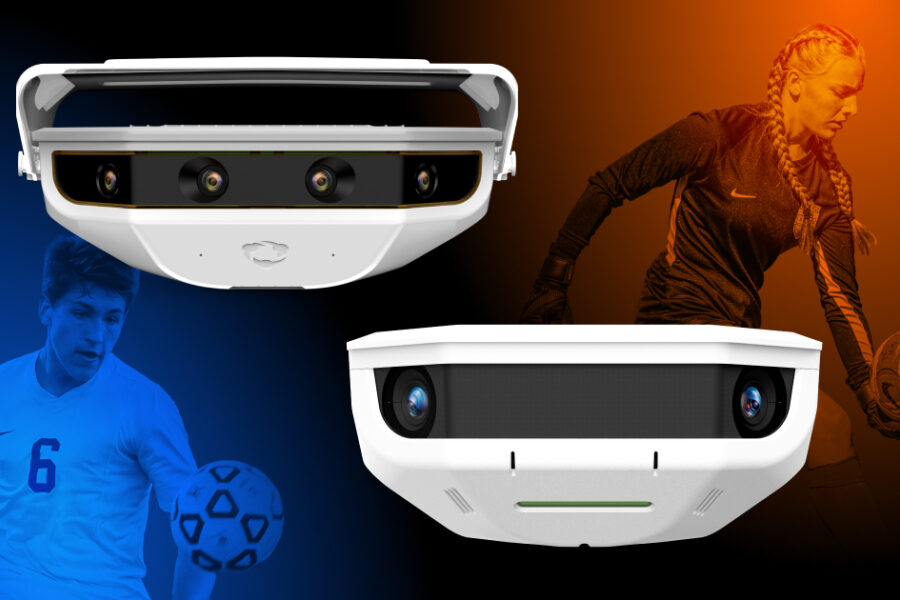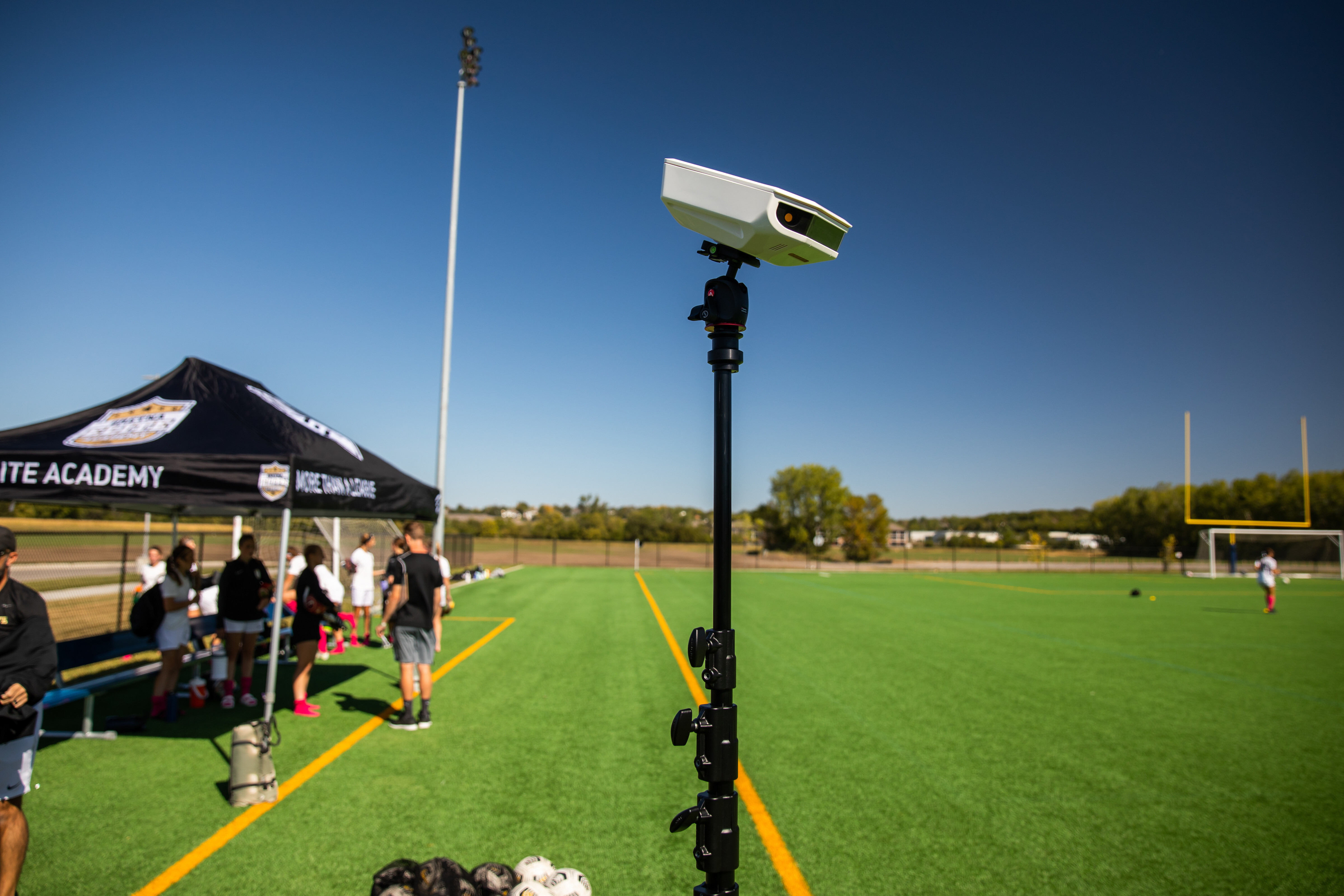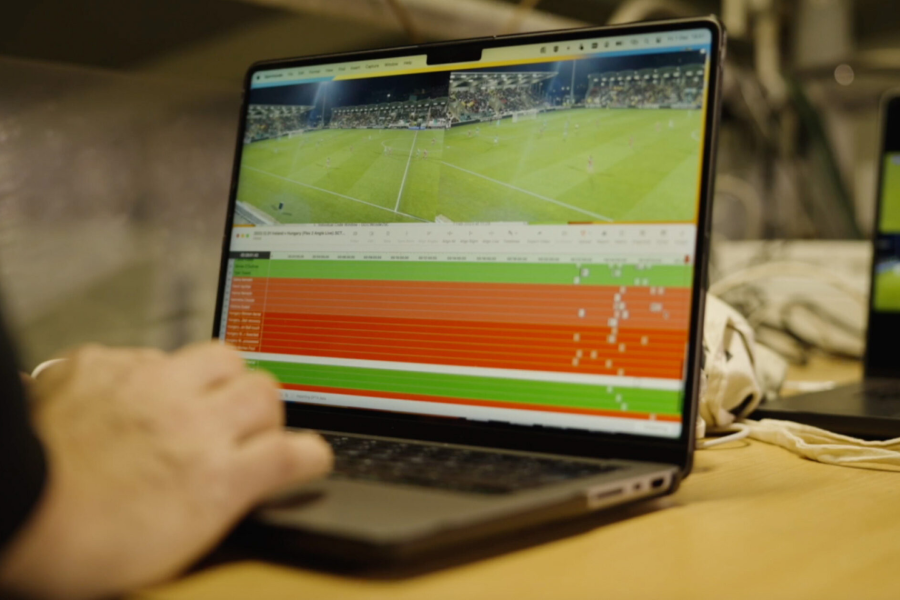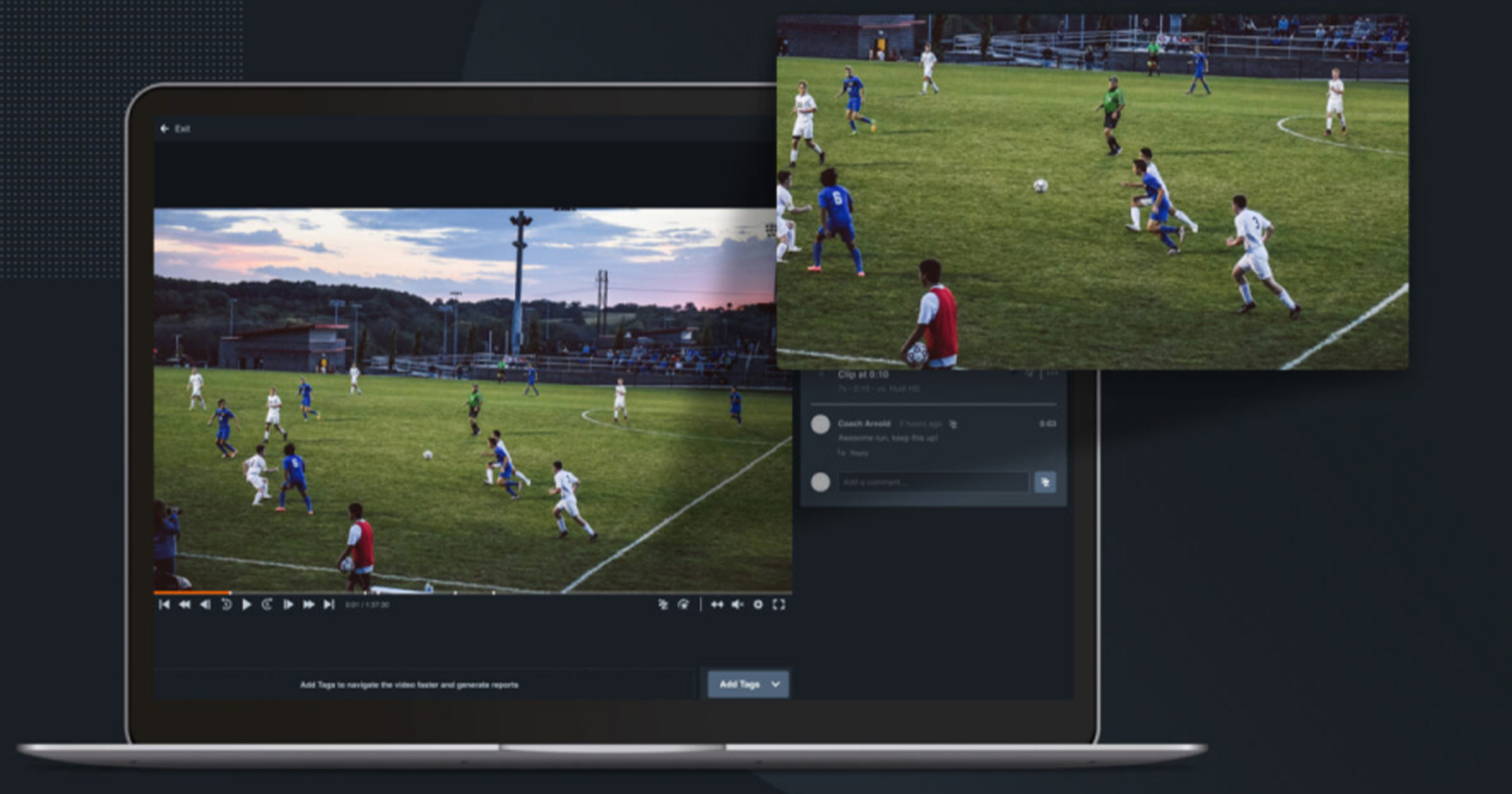Top Football Cameras and Techniques for High-Quality Analysis

Take a closer look at the best football camera systems on the market to fit the needs of clubs at all levels of play.
Types of Football Cameras for High-Quality Recording
Manual Cameras
Manual camera systems include television broadcast equipment and handheld camera systems such as Handicams and mobile devices mounted on a tripod. While functional in their use, manual cameras require a camera person to operate and offer limited camera angles and visibility of the pitch.
Automatic Cameras
Automatic football cameras do not require the use of a camera person, giving the advantage of freeing up staff resources to be used elsewhere. These cameras are football tracking cameras, which use AI to automatically follow the action in a tactical fashion, with HD output. Automatic football cameras can be split into two categories - fixed and portable. Let’s explore the difference between the two.
Fixed football cameras are permanently installed within a training ground or stadium, set at the correct height and distance from the pitch to allow a flawless capture of the action. This is a set and forget option.
Portable football cameras can be set up in any location, any place, any time. This is useful for teams who want a solution that can be used both at the training ground and on a match day - both home and away.
Top Football Camera Systems for Professional-Level Analysis
The fixed football tracking camera that professional teams around the world use is Hudl Focus Outdoor. Focus Outdoor is the fully-automated sports camera system that automatically records in 4K, streams your scheduled events, with footage uploading directly to the Hudl platform for immediate reviewing capability.
- AI-powered ball and player tracking
- Multiple angles of capture
- Multi-camera capabilities to power detailed penalty box footage
- One-time, simple installation process
Hudl Focus Flex is our newest offering to the world of portable football tracking cameras. Focus Flex can be set up in any location, at any time, providing instant access to HD quality recording across multiple angles of capture.
- Tactical and extra wide tactical angle capture
- Automatic uploads via 4G, WiFi or ethernet.
- Integration with Hudl, allowing for instantaneous review of footage
Best Practices for Recording Football Matches
To best utilize your football video camera, you will need to consider the placement and height settings of your camera. This will allow your camera to have full visibility of the action on the pitch across every angle that the camera offers. A guide for both fixed and portable cameras follows below.
Positioning Your Camera for Optimal Match Recording
Regardless of whether you are using a fixed or a portable football video camera, it's crucial to have the camera positioned correctly and at a height that will allow your analyst to have an optimal view of the camera feed to best analyze team formations, passing lanes and identification of space. Here’s a quick guide to camera positioning and height:
Fixed cameras:
- Camera positioning: The positioning of your camera needs to be a fixed location at the 50-yard line, or the midfield line, no more than five feet or 1.5 meters to the left or right of the center line. This is because a center location is the only way to capture the entire field of play.
- Camera height: Your camera’s required height depends on how far it’ll be from the sideline. Once you measure the distance from the field’s sideline to the mounting location, you can use this chart below to determine how high it needs to be.
Portable cameras:
- Camera positioning: To get the correct angles, the camera cannot be set up on the endline.
- Camera height: When using the Hudl Focus Flex football camera, we recommend placing your tripod with the Flex camera at least 10 ft. (3 m) away from the sideline and at least 12 ft. (3.6 m) in the air. Do not raise your Flex camera higher than 20 ft. (6.1 m) in the air. For Focus Flex, you can use this chart to calculate the camera height needed for your requirements.

Types of Recordings
Tactical Angle: Tactical angle is a view of the full field of play and is the angle that professional Coaches and Analysts will most commonly use to follow live action. In a football game, the tactical angle keeps all 20 outfield players in view together, with one of the goalkeepers, depending on the area of the field.
The tactical angle is important for Coaches and Analysts to see how the team is moving, the spaces between the players, the spaces between the lines and positioning of the defensive line.
Tactical Panoramic: Tactical panoramic is more of a static angle of capture, that captures the entire field in a 180 degree style of footage. The value of using the tactical panoramic angle is that you can constantly see the entire field, with every player and both goalkeepers visible.
Static angle: Static angles are angles captured from a fixed position, with a camera that doesn’t move. These angles can be valuable as part of a multi-angle capture setup.
Multi-angle: Multi-angle capture allows you to cycle between multiple different angles of view, which is extremely useful for analyzing play during live action. For example, you could have your sideline football tracking camera recording a tactical angle and a static angle simultaneously, which allows you to track the ball as it moves (tactical angle), but also lets you switch to a static angle to get detail on the positioning of players in a certain area of the pitch, or the positioning of the goalkeeper.

Automated Tracking
Both Hudl Focus and Flex Cameras are hands free and powered by AI - meaning the action on the pitch is tracked automatically by the camera. This frees up staff members from the role of manual camera operation, giving you back the crucial resources of manpower and time. These staff members can now focus their attention on more important tasks like game review, coaching and tactical analysis. Gaining back this additional manpower is especially useful in organizations with a smaller amount of human resources and support staff.
Close-up shots of key game moments
The ability to generate close-up shots of high-quality footage during in-game action is crucial for performance analysis and coaching at a professional level. For example, when analyzing individual player actions, you can get close enough to see detailed micro-actions, such as hand placement or foot placement. Having a football recording camera that can capture in high enough quality is required to capture these micro-actions.
The Pan and Zoom Feature on the Hudl platform is a great way to get these closer looks. Hudl Focus and Focus Flex cameras integrate directly with Hudl, meaning the HD footage captured on your football camera system will immediately upload to Hudl, where you can then make use of individual coaching features such as Pan and Zoom.
Using close up shots is also very useful for creating highlights packages for players who want to showcase their talents. Using Hudl, athletes can create playlists of highlights, enhanced with tools such as Pan and Zoom, which give greater detail to their actions.

Post-match and Live-match Review
For post-match review, footage captured on both the Hudl Focus and Hudl Focus Flex cameras is imported automatically to the Hudl platform for instant coach to player review, through playlists of clips with drawings and annotations. Additionally, through Hudl Assist teams can get fast access to match breakdowns allowing them to tie data to video, making it easy to see strengths, weaknesses and provide objective feedback to improve performance.
During live matches, a number of variables can change the way coaches, analysts and players need to adapt. The scoreboard, change of formation, being reactive to tactical changes of the opposition and changes in the weather, to name a few.
Professional coaches and analysts from successful organizations will be ready both proactively and reactively through their use of analysis tools to change or modify tactics from the sideline when needed.
Hudl Replay is the tool that takes a live feed from a Hudl Focus camera and allows the footage to be viewed on a mobile device on the bench, where it can be re-wound to provide instant replay of live action.
This live feed can also be clipped and playlisted through a direct integration with Hudl Sportscode, this option is popular with analysts who want to create presentations for the half time break.
Slow-motion for frame-by-frame analysis
Integrating your football camera system with instant replay tools will expand the breadth of your In-game decision making by combining your live capture with tools that allow you to get more granular with the review of your footage.
Hudl Replay users can view their live feed from a mobile device on the sideline and using the integrated Zoom and Slow Motion feature, zoom in 2x or 3x, or switch to slow motion with a simple double tap or long press on the screen.
The ability to zoom and slow motion your live feed allows coaches, analysts and medics to see every detail of every action. Not only can coaches and analysts review game situations with more granularity, but also medics can get a better idea of injury mechanisms. Zoom and Slow Motion are an extremely powerful combination for a variety of staff concerned with technical/tactical analyses or player welfare.




